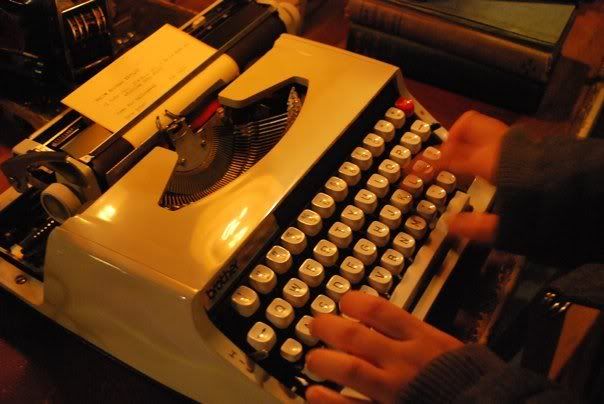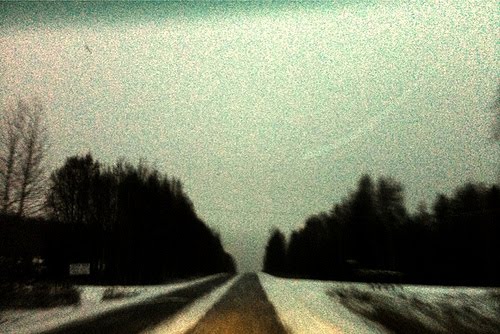Saving money by reducing library services is like trying to save a bleeding man by cutting out his heart.
In the long term, does it really matter if books are a thing of the past? So long as the book-length texts that used to appear within printed covers are still available in some form, so long as we can still summon the attention to follow many-chambered sentences and access the privacy and reflectiveness of a Thoreau, the intricate feelings and psychological acuity of a Proust, it hardly matters what kind of medium is bringing us our words.
But if the library disappears, then we're really in trouble. A library is much more than a collection of books; it is a sanctuary, a symbol and both a model for community and its encouragement. Even those who make their living by nonverbal means know, as Keith Richards once declared, that "when you are growing up, there are two institutional places that affect you most powerfully: the church, which belongs to God, and the public library, which belongs to you. The public library is the great equalizer." The Rolling Stones guitarist, not surprisingly, made the only public American appearance in support of his recent autobiography at the New York Public Library.
A library is not just a place where many have lost themselves (as it's hard to do in the increasing clamor of a bookstore); it's where countless souls — and surely a good percentage of students — slowly find themselves. When Ray Bradbury, in "Fahrenheit 451," predicted a world in which simply owning a book would be a crime, he was drawing from his own experiences educating himself in the libraries of Los Angeles, when he couldn't afford to go to college. Three days a week, for 10 years, he read and then learned to write amid the collected inspirations of the shelves.
In recent years, in my sometime home of Santa Barbara, I've seen a whole floor of our three-story central library taken over by CDs, and then by DVDs, and then closed off altogether. But that hasn't been the end of our world. The library is still the place to go to be warm on a winter afternoon, to collect one's thoughts while running errands downtown, to give oneself over to a slower, quieter way of being and to attend a slide show on the Antarctic. It's where we go to find job listings, or in the hope that that cute book-lover from last week may again be at the table near the Travel section; it's the rare place in our public life that is, officially at least, as silent as church.
It's often as full of reverence, too. I go to the Los Angeles Central Library to hear Orhan Pamuk and Salman Rushdie speak; to meet the kind of people who, by their appearance there, are clearly like-minded souls and to be reminded, in an unanswerable physical form, of a wisdom that stretches back centuries.
In a world ever more given over to solitary, onscreen pursuits, the library is where, ironically, we're taken out of ourselves (as we're not when reading at home) and brought into a wider circle of (often inward-looking and private) others.
So you can imagine my shock when, returning to Santa Barbara over the Christmas holidays, I went to the library and found it closed. A sign announced that it no longer opened its doors on Mondays. Another flier said that it would not be opening during the holidays. I'd wanted not just to make photocopies and browse idly through old magazines but to look up a reference in a 1999 biography of Bruce Chatwin. Try finding a book like that in Barnes & Noble or in a Borders in 2010.
In an affluent community like Santa Barbara, we're blessed with a great research library at our university, an extraordinary independent bookstore (Chaucer's) and a century-old second-hand bookshop, The Book Den. But in none of them could I find a 1968 collection of Joan Didion essays I wanted to reread. And in none of them could I see the whole town — homeless people there for the restrooms, newcomers from Afghanistan seeking employment, reluctant teenagers being quiet for a while, wealthy Shakespeare-lovers taking out old DVDs of "Antony and Cleopatra" — all assembled.
I recently heard that every one of the 73 libraries in the city of Los Angeles now close their doors on Mondays too, and on Sundays. There's talk of their opening only three days a week.
Who cares, some will say. You can find everything you want on the Internet. Not if you want to find what you weren't looking for, savor the carpeted hush and the sense of attention in a world of books without coffee, or even, like some recent immigrants, get onto the Internet without squandering your life's savings.
Our state and city budgets are in desperate shape, we all know, but to save money by reducing library services and resources is like trying to save a bleeding man by cutting out his heart. Or — if we could reach it — his soul. Measure L on the Los Angeles ballot March 8 proposes to use a greater share of city funds not only to ensure that every library around town is open at least six days a week, but also to support such library programs as student homework help, adult literacy courses and job search facilities. Vote yes on Measure L if you don't want to see how costly saving money in the wrong place can be.

